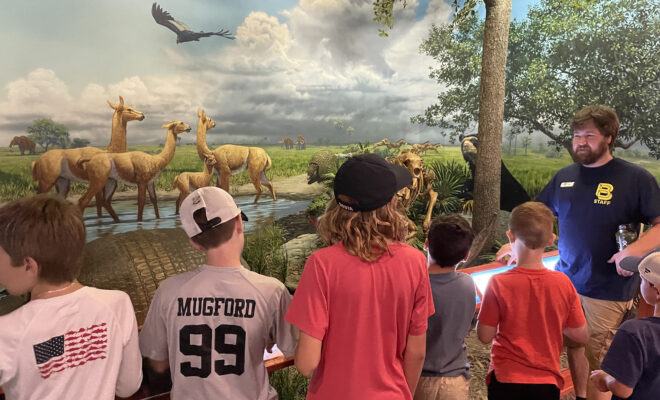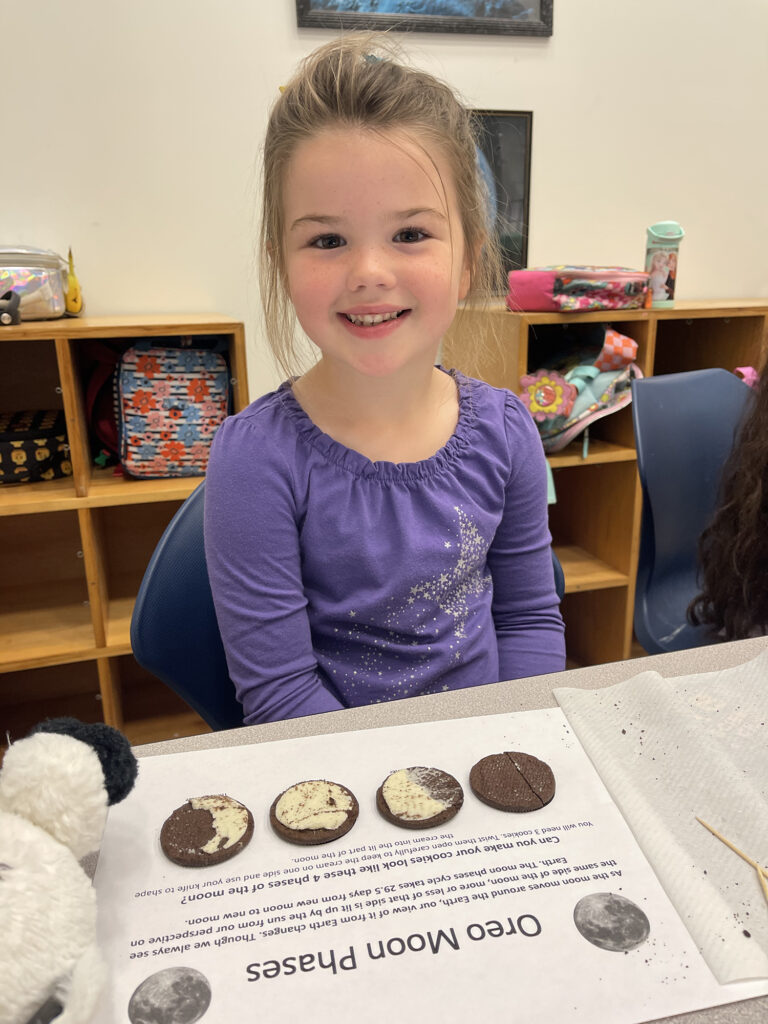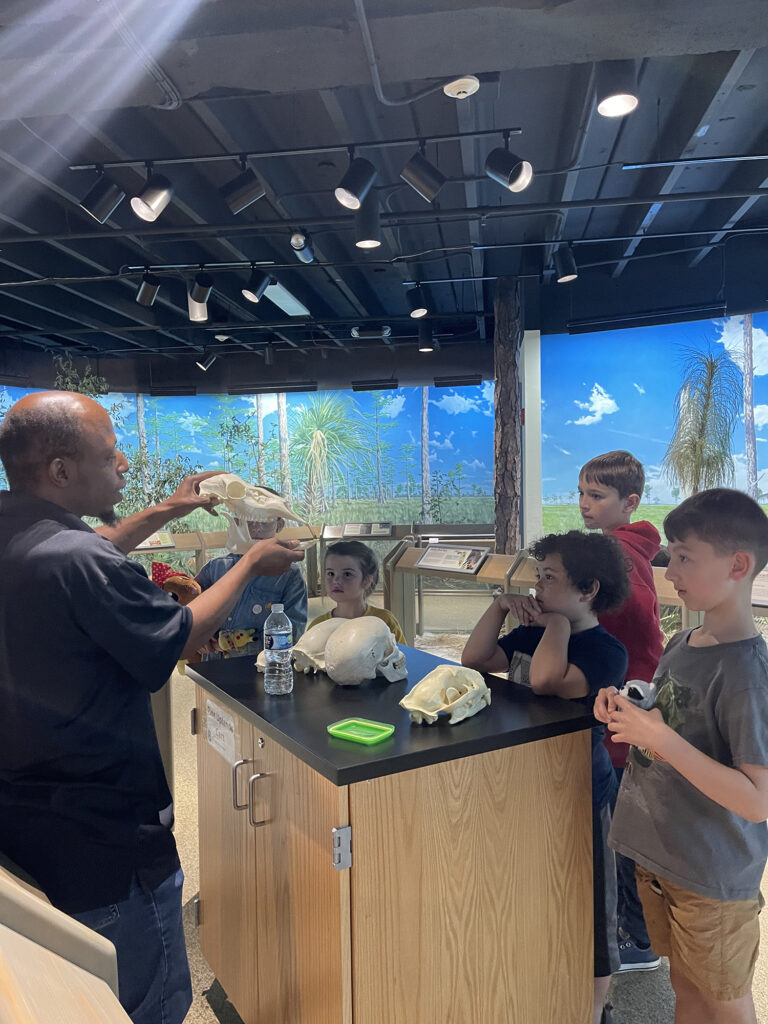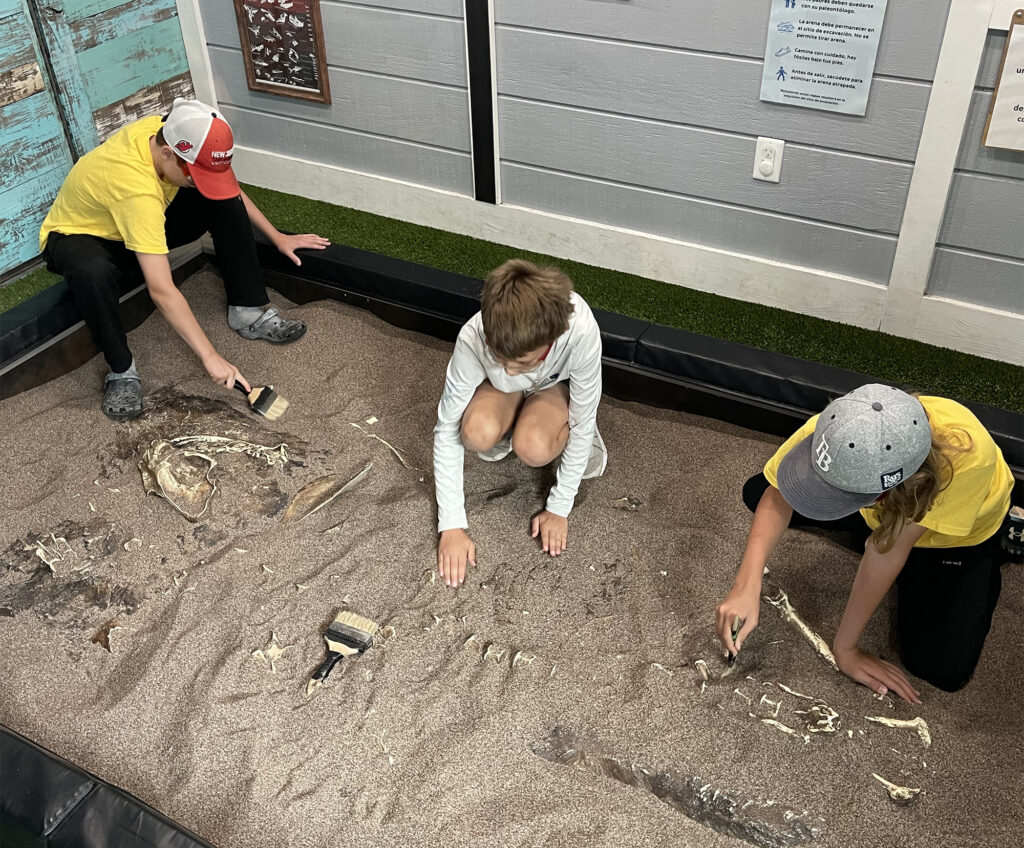
Education
Education Matters | Discover the Bishop Museum of Science and Nature: A Hub of Educational Excellence and Community Engagement
By Joshua Thomas Bray | September 2024
Located in the heart of Bradenton, The Bishop Museum of Science and Nature stands as an inspiration for educational enrichment and community engagement on the Gulf Coast. As the largest natural and cultural history museum in the region, The Bishop Museum offers an array of interactive exhibits and educational programs that cater to a diverse audience. From its state-of-the-art planetarium to the engaging Mosaic Backyard Universe, the museum is dedicated to inspiring a lifelong love of science and nature.
Its commitment to education is at the core of The Bishop Museum’s mission. Its educational programs ignite curiosity and cultivate a deeper understanding of the natural world. These programs, including the well-known Backyard Science and Homeschool Science Days, are carefully crafted to cater to different age groups and learning styles, ensuring that every visitor, from toddlers to teens, can benefit from its offerings.
Gabrielle Meyer, the Director of Learning at the museum, emphasizes this approach: “The idea behind our educational programming is that we want to enhance educational experiences using our collections and the expertise of our learning specialists.” This focus on personalized learning is evident in how programs are structured to meet the needs of various learners.
Backyard Science is one of the flagship programs, held every Saturday during the school year. It provides children with the opportunity to dive deeper into a specific science topic through hands-on activities, observation, and creative play. The program is designed to be dynamic, with monthly themes that link to different exhibits within the museum, such as the Mosaic Backyard Universe. This ensures that learning extends beyond the classroom and into the exhibits themselves, making the experience more immersive and impactful.

Another significant program, Homeschool Science Days, occurs on the second Thursday of each month. This program offers a tailored educational experience for homeschooled families, allowing students to explore topics in a structured yet flexible environment. The program is divided into two segments: Junior Explorers and Discovery Rangers, catering to younger and older children respectively. This differentiation ensures that each child receives an appropriate level of challenge and engagement.
The Bishop Museum’s commitment to accessibility is also a hallmark of its educational outreach. Through participation in the Museums for All program, the museum offers free admission to low-income families, ensuring that financial barriers do not prevent anyone from experiencing the museum’s rich educational offerings. Other programs include Blue Star Museums and Museum on Us through Bank of America.The Bishop Museum also offers free admission to all Florida teachers and active-duty members of the U.S. Military, including free admission to all US military Veterans in November. Additionally, the museum provides scholarships for programs like summer camps, further supporting families who might otherwise be unable to afford these opportunities.
These scholarships are made possible through the generous support of donors who are passionate about making education accessible to all. Meyer shared that these scholarships have had a significant impact, stating, “We had a scholarship for a few families that were very much in need. Those students were with us for multiple weeks and able to enjoy the unique and impactful experience. Through generous donors and people who believe in our mission, we’re able to make these experiences accessible to all students and families.”
One of the most innovative and engaging spaces within The Bishop Museum is the Mosaic Backyard Universe. This interactive exhibit was designed specifically with children in mind, offering them a space to explore scientific concepts in a playful and creative environment. The exhibit features a treehouse, a cardboard rocket ship, and various hands-on activities that encourage exploration and learning.
While the exhibit was in place before Meyer joined the museum, she has been instrumental in enhancing the educational value of this space. Her focus has been on creating experiences that are both engaging and educational, ensuring that even frequent visitors find something new and exciting each time they participate. The Mosaic Backyard Universe is not just a place for play; it’s a carefully designed educational tool that helps children connect with scientific concepts in a tangible way. By integrating these concepts with elements of imagination and creativity, the exhibit allows children to learn in a manner that feels natural and enjoyable. Whether it’s solving puzzles, exploring the treehouse, or engaging in one of the many hands-on activities, children are constantly learning while having fun.

The Bishop Museum has also made significant strides in integrating STEM (Science, Technology, Engineering, and Mathematics) education with its natural history focus. This integration is most evident in the museum’s approach to programming, where natural history exhibits are often used as a springboard for exploring broader STEM topics. For example, the museum’s manatee rehabilitation efforts are not only about conservation but also provide a unique opportunity to explore engineering challenges related to marine biology, such as improving boat propeller designs to minimize harm to wildlife.
Meyer’s, with her background in science and engineering education, has been a driving force behind this integration. “There’s a lot of ways to pull STEM education in how you’re going to improve something, make it better, look at it with a different lens,” she notes. This approach ensures that the museum’s educational offerings are not only grounded in natural history but also relevant to contemporary scientific and engineering challenges.
To further support this integration, the museum is introducing a STEAM cart (Science, Technology, Engineering, Arts, and Mathematics)—a mobile unit filled with building challenges and other activities that encourage children to engage with STEM concepts in a hands-on way. This initiative is part of a broader effort to make STEM education more accessible and engaging for all visitors, regardless of their prior exposure to these subjects.
In response to the growing influence of technology in education, The Bishop Museum has begun integrating digital tools and resources into its programming. However, the museum remains committed to the value of in-person, hands-on experiences, which are central to its educational philosophy. While technology is used to enhance certain aspects of programming, such as background research and planning, the focus remains on providing immersive, interactive experiences that cannot be replicated through a screen. This approach reflects the museum’s broader educational strategy, which prioritizes direct engagement with exhibits, materials, and educators. By fostering an environment where children can explore, create, and learn in a tactile and interactive way, the museum ensures that its programs remain relevant and impactful in a rapidly changing educational landscape.

Looking ahead, The Bishop Museum is not content to rest on its laurels. The museum’s educational team, led by Meyer, is continuously exploring new ways to expand and enhance their programs. This includes not only adding new programs but also refining existing ones to ensure they remain relevant and impactful. The museum is also exploring opportunities to host large-scale events that can bring the community together around shared educational experiences. These events would be designed to appeal to families and would tie directly into the museum’s mission of making science and nature accessible to everyone. By focusing on quality and engagement, the museum aims to create programs that are not only educational but also memorable and fun for all participants.
As the museum continues to innovate and adapt, its commitment to providing high-quality, accessible, and engaging educational programs remains unwavering. The Bishop Museum of Science and Nature is setting a new standard for what a modern educational institution can achieve.
FOR MORE INFORMATION about The Bishop Museum and its educational programs, visit its website at www.bishopscience.org.



You must be logged in to post a comment Login